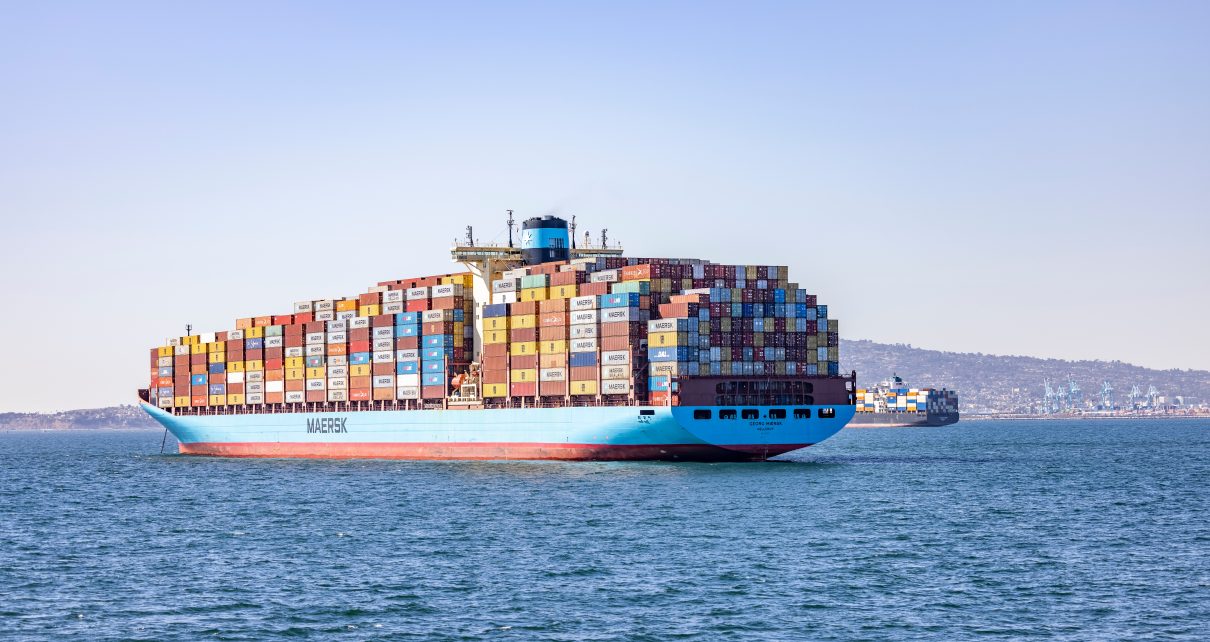
Cargo Ships line the coast causing shipping delays amidst global supply chain disruption affecting container ships and freight. (Photo: Clearsunrise/Shutterstock)
Some Interesting Provisions from AB 2406: Intermodal Marine Terminals
Most exporters pay fees to borrow containers
By Chris Micheli, September 11, 2022 9:51 am
Assembly Bill 2406 deals with intermodal marine terminals and would amend Business and Professions Code Section 22928. Among several provisions, the bill would prohibit an intermodal marine container provider from commencing or continuing free time if cargo is unavailable for retrieval and timely notice of cargo availability has not been provided.
In addition, this bill would specify that, where certain provisions are addressed by future federal law or regulation, and the federal law or regulation permits states to exceed the requirements set forth in the federal law or regulation, the more stringent provision is to govern. Specifically, AB 2406 would add the following provisions to existing law:
(f) (1) Where provisions of this section are addressed by future federal law or regulation, and the federal law or regulation permits states to exceed the requirements set forth in the federal law or regulation, the more stringent provision shall govern.
(2) It is further not the intent of the Legislature to establish a reasonableness test under Section 41102 of Title 46 of the United States Code, as in effect on June 16, 2022, for the agreement by commercial entities to rates, charges, or service requirements.
These of these proposed subdivisions are interesting from a policy perspective for several reasons.
First, Subdivision (f)(1) would require a “more stringent” provision to govern. This does not happen often, but we do find a similar provision in other statutes, usually dealing with a state statute versus a local ordinance. I think this subdivision is unique because it references “future federal law or regulation” and it described a situation between state and federal laws where preemption is not an issue.
In other instances when a California statute references a federal law, that federal statute or federal regulation is actually cited because the particular statute or regulation is currently in effect. Instead, this new provision of state law presumes that there will be a federal statute or regulation on the same topic.
Moreover, this new provision of state law essentially assumes the federal statute or regulation will not only be acceptable shape no matter what form (in its language) it takes, but also that it could govern in California, assuming it is “more stringent.” And, by the way, what makes that federal statute or regulation more stringent?
Second, Subdivision (f)(2) would provide a legislative finding and declaration to not establish a reasonableness test that is required under federal law. I think this subdivision is unique because we rarely read a finding or declaration of the Legislature in a bill that is stated in the negative.
- Legislative Policy on Bay Area Pilotage - July 26, 2025
- Small Craft Harbors and Waterways in California - July 25, 2025
- Disability of Parties in Civil Actions - July 24, 2025








3 thoughts on “Some Interesting Provisions from AB 2406: Intermodal Marine Terminals”